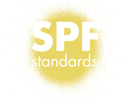As economic problems continue, insurance industry experts say there still is plenty of financial capacity to insure, but some firming of insurance markets already is taking place. The next two years could see a tightening of pricing and terms with more disciplined underwriting.
Now is the time to take a look at your commercial general liability (CGL) policy. There are several areas where you still may be able to broaden your coverage beyond the standard Insurance Services Office (ISO) endorsements.
Who is an insured
Review your policy for complete details but, generally speaking, Section II of the CGL—Who Is an Insured—covers the following:
- You as an individual; a partnership, joint venture, limited liability company or other organization
- Your employees; any person acting as your real estate manager; any person having proper temporary custody of your property if you die; your legal representative if you die
- With respect to mobile equipment registered in your name, any person driving such equipment along a public highway with your permission
- Any organization you newly acquire or form other than a partnership, joint venture or limited liability company and of which you maintain ownership if there is no similar insurance available (coverage is only afforded until the 90th day after you acquire it or the end of the policy period, whichever is earlier)
The policy also says no person or organization is an insured with respect to the conduct of any current or past partnership, joint venture or limited liability company that is not shown as a named insured in the declarations.
The larger your business becomes, the harder it becomes to maintain a list of all your entities. The broad named insured endorsement is intended to reduce the insurance administrative problems you may encounter in acquiring new entities by covering all entities for which you, the named insured, are responsible.
The general wording used in the broad named insured endorsement is: "The named insured includes all subsidiaries, affiliated, associated, controlled or allied companies, corporations, or firms as now or hereafter constituted, for which the named insured has responsibility for placing insurance and for which similar coverage is not otherwise specifically provided."
Obligations
Most liability policies, including CGL policies, contain a clause requiring prompt notice of claims or even events that may lead to claims. The ISO CGL wording is: "You must see to it that we are notified as soon as practicable of an 'occurrence' or an offense which may result in a claim."
The ISO property policy has a similar clause. The "you" means the named insured. If you have the broad named insured endorsement, "named insured," may include entities not even mentioned in the policy itself.
In case a claim is unintentionally not promptly reported to the insurer, the solution is to add another nonstandard endorsement known as the "knowledge of occurrence" endorsement.
An example of common wording is: "Knowledge of an occurrence by an agent, servant or employee of the named insured shall not in itself constitute knowledge of the insured unless the chief financial officer (or other titled person such as the director of risk management, controller, etc.) shall have received such notice."
The obligation to forward a written notice you might receive of a potential claim is a separate obligation from reporting a claim because there is a condition in the policy that states "you must see to it that we receive written notice of the claim or 'suit' as soon as practicable."
Discuss endorsements
Be sure you discuss these endorsements during your annual review with your insurance producer as they often are not included in standard policy forms but can be obtained through negotiation.
Leslie Kazmierowski, CPCU, is NRCA's insurance programs manager.



